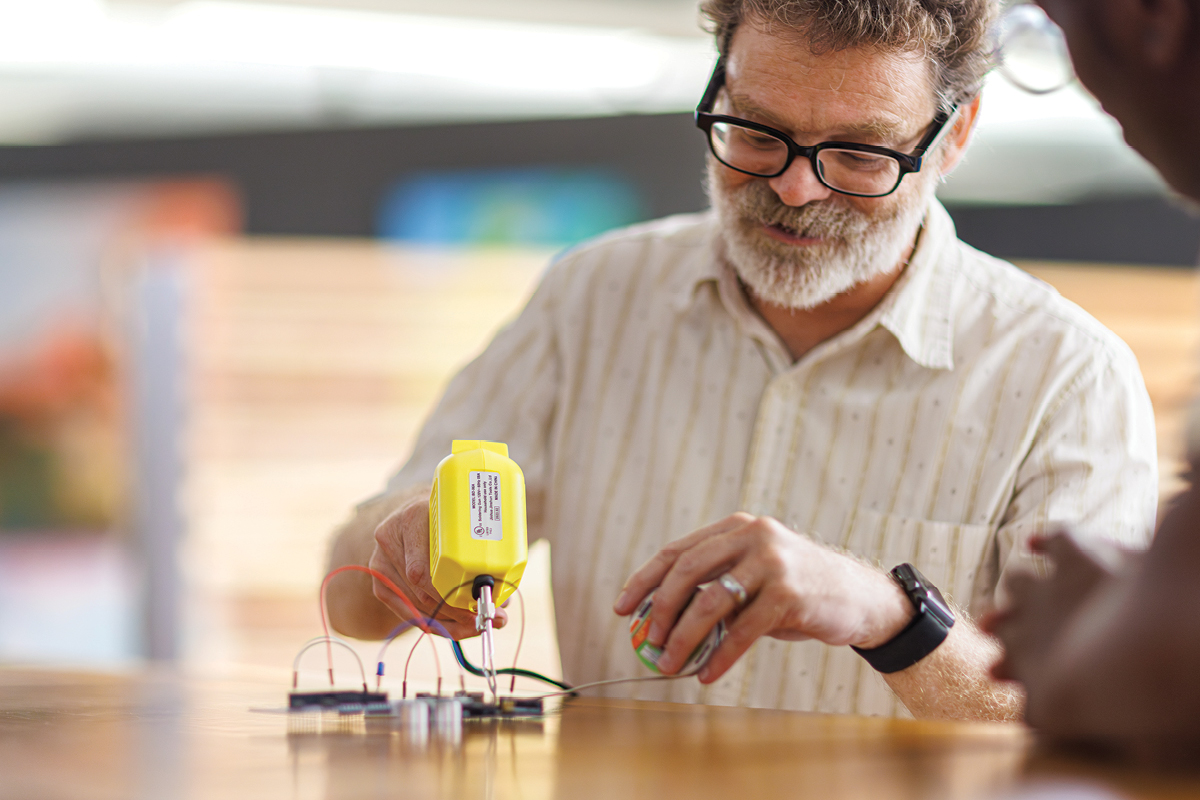In fall 2023, Palm Beach Atlantic launched its Bachelor of Science in Engineering program, welcoming its first-ever class of 13 engineering students.
The program reflects the rapid economic growth of Florida, including Palm Beach County and the neighboring Space Coast—boasting massive potential for growing energy, aerospace, transportation and tech positions. That means leading companies such as NextEra Energy and Lockheed Martin will look for STEM (science, technology, engineering and mathematics) graduates to fill jobs.
Dr. Fred Browning, professor of Physics, led the curriculum’s development. He says Florida’s growing economy, industry trends and President Dr. Debra A. Schwinn’s vision to add engineering initiated the program.
The major offers four concentration options: engineering physics, electrical engineering, computer engineering and general engineering. Courses include calculus, prototyping design, physics and chemistry—emphasizing hands-on work and group projects. Upper-level classes will start junior year. A twosemester design course will serve as a capstone.
“You have that faculty-student interaction that big schools don’t have,” said Dr. Browning. “We can also be innovative in what we’re developing. We’ll have quantum computing in the engineering physics track, which you don’t find in a lot of other programs.”
Dr. Browning, the first theoretical physicist PBA hired, adds that the university’s Christian worldview sets the program apart.
“We’ve always had a strong science department,” he said. “By bringing in people for [this program], we are reaching out to say, ‘You can do real scientific work—not pseudoscience, but deep, meaningful science—and still have faith in Christ.’”
To meet the growing number of students, PBA will expand its faculty and construct two new laboratories for the program. In addition to a rigorous foundation in mathematics and science, students will receive a classic liberal arts education. In year one, students will discuss ethics in innovative technology, current topics and how faith impacts design and purpose.
Dr. Browning is also working with PBA’s Office of Career Development to connect with companies and nearby universities, giving students more opportunities to apply engineering principles and skills to internships, fellowships or part-time positions.
“[This] is a great opportunity for us to match the needs of the community,” said Dr. Browning. “I think it’s going to bring a different kind of student to PBA—it’s a whole market we haven’t reached before.”
